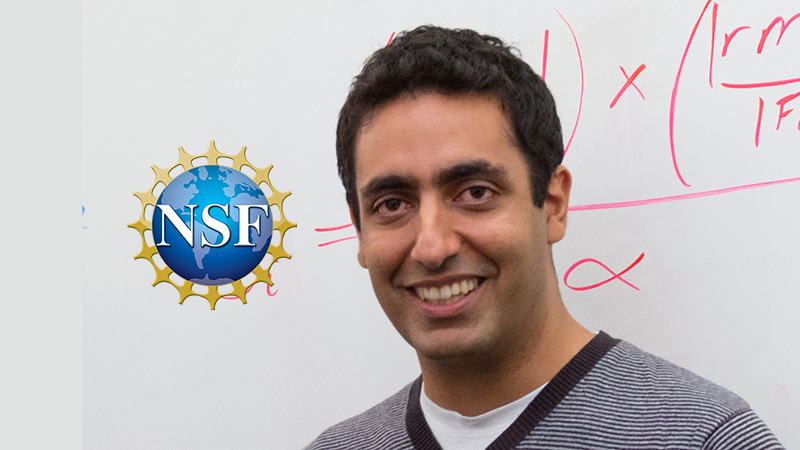UCLA Computer Scientist Receives NSF CAREER Award to Improve Wireless Network Connectivity and Reliability

Omid Abari, an assistant professor of computer science at the UCLA Samueli School of Engineering, has received a CAREER award from the National Science Foundation — the agency’s highest honor for faculty members in the early stages of their teaching and research careers.
The award includes a five-year, $577,000-grant to support Abari’s research in making high-speed 5G and 6G wireless networks more reliable, readily accessible and widely available.
Fundamental improvements in these networks could allow for the broader spread of high data-rate technologies that operate in real time — from telesurgery to immersive educational technologies, especially in remote and underserved areas. They could also help low-power, internet-connected devices, such as Internet of Things and passive sensors, extend their battery life.
Two main challenges exist in scaling up these networks, which rely on millimeter wave (mmWave) technologies to carry data. First, their high data-rate signals are easily blocked by objects and make their connectivity spotty. Second, due to the amount of power needed to connect on these networks, devices such as sensors with small batteries lose their power much faster than when they are on Wi-Fi networks.
To tackle these problems, Abari is developing a suite of new tools to extend the coverage of high-speed networks with low-cost and low-power solutions. For example, he is employing novel signal repeaters and surfaces to increase the reliability and extension of the networks. He is also designing new technologies across all parts of the wireless stack — antennas and hardware to improve connectivity, novel operating algorithms to enable low-power links and new networking protocols for end-to-end systems. Finally, he is working on a new scheme for energy-constrained devices to harvest energy from mmWave networks.
The suite of products will be deployed in smart home applications to demonstrate their effectiveness. Ultimately, more reliable and ubiquitous 5G and 6G networks could have a major impact across many aspects of society — education, environment, health, agriculture and emergency response.
Before joining UCLA Samueli in 2020, Abari was an assistant professor of computer science at the University of Waterloo in Ontario, Canada. He received his Ph.D. from the Massachusetts Institute of Technology.
